Interview: Andrew Boulton on the Weird, Wonderful World of Copywriting
10 May 2021
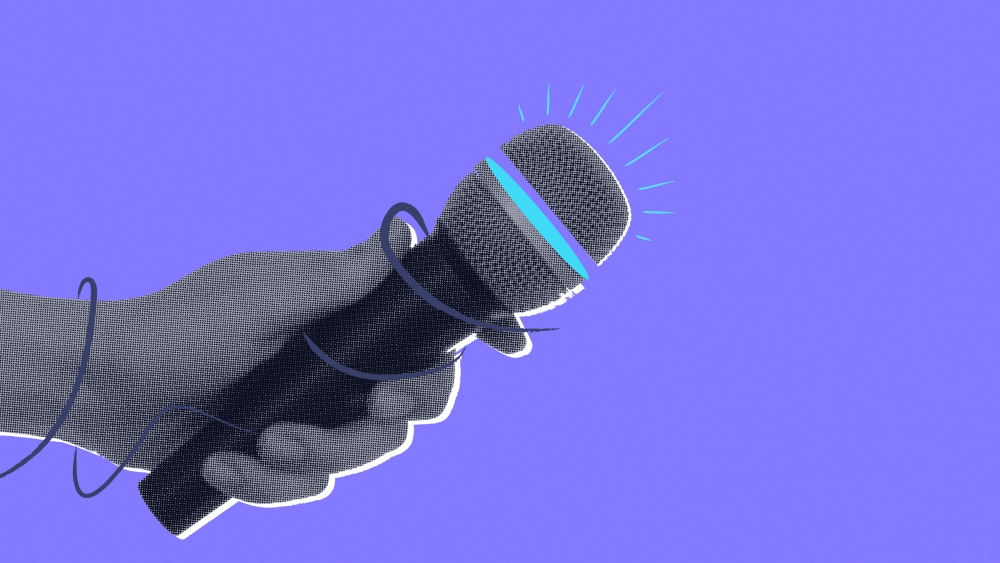
The next article for our Great British Creativity campaign features Andrew Boulton, Copywriting and Creative Advertising Senior Lecturer at the University of Lincoln by day, freelance copywriter by night. For about 12 years, Andrew has been writing copy for brands and charities such as the National Trust, Alton Towers, Boots, Stella Artois, and Thomas Cook.
Read our interview below to find out about everything from the launch of his new book, Copywriting Is – which has become the #1 bestseller on Amazon for advertising books – to the two pillars of fantastic copy and how we can help young talent in the creative industry.
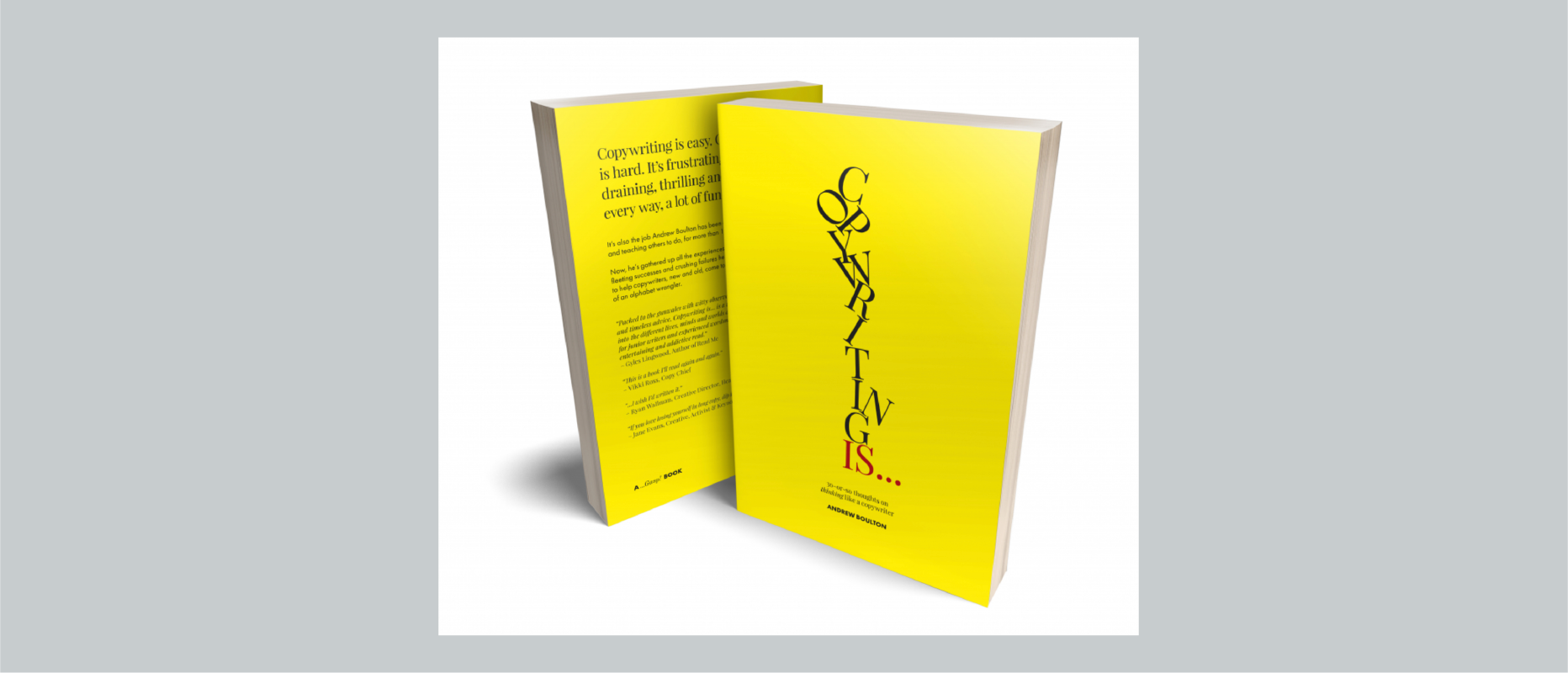

In your own words, what is a copywriter and what do they do?
Copywriters use words to make people do stuff. There's obviously different disciplines, skillsets, and approaches, but fundamentally, it's the job of persuasion, getting people to think or act in a certain way. And you can still do that beautifully, using craft and creativity. In the early years of your career, you need to get your head around that you’re not just writing for yourself. If you've only ever written for pleasure, it's a hard mindset to get into.
Aside from actual writing, what else do copywriters do?
First and foremost, concepting, and that goes hand in hand with experimentation. I don't think you can be a good copywriter if you have a fixed idea of how things should be done, what’s good and what’s bad, what’s your style and what’s outside of your comfort zone. You have to be willing to force yourself way beyond those limits to try new styles and formats and express an idea in 100 different ways. That's the flexibility in the limitlessness of the language.
How did you get into copywriting?
I was living in Australia and I accidentally got a couple of writing jobs. One was writing football reports for a newspaper and the other was writing adverts for the Australian Yellow Pages. It was this introduction to you can actually get paid to write, and that was a complete eyeopener. So I came back to the UK and did some research to find out what jobs there were. Like for a lot of young creatives, no one tells you about copywriting, so you don't know it exists.

Do you think this is changing and more universities are exposing young talent to copywriting?
I'll be really honest, probably not. There's only a handful of courses in the country that do Creative Advertising. I don't know any copywriter who found their way into the industry by design. Everyone has their own story of bumbling into it. Hoping the best talent will find us by accident is such an unsustainable way to keep the industry going.
Do you think there's anything we can do to help young talent?
A lot of the responsibility sits with us as copywriters. Tell as many people as you can about it and tell people outside of our world.
I wrote an article about introducing copywriting to English teachers, so they can provide a pipeline for the next generation of copywriters. A few people messaged me saying, this is really interesting, I'm a teacher, what do I tell my students? So, I put together an introduction to copywriting guide and said I'll share it with any teacher who wants it, and I ended up sending about 200, which was way more than I expected.
It's a tiny drop in the ocean in terms of what we need to do to truly spread the word. But if every writer is taking on a little bit of that responsibility themselves, hopefully copywriting will become much more mainstream and talked about.
Is there anything young talent can do for themselves?
What I've learned is the most successful people, the ones you imagine would be distant and busy, are generous with their time and sharing what they’ve learned. When young creatives contact someone and say, can you tell me more, can you give me some advice, eight times out of 10, someone is going to come back to them not only with something useful, but with a genuine want to help. My advice is if there's a creative you admire and want to learn from, just reach out.
Robyn Frost, Senior Creative at TBWA\Chiat\Day New York, and Zoe Scaman, Founder of strategic agency Bodacious, have put together this incredible list of creative mentors, which is indicative of that generosity and willingness.
The tricky bit is having the confidence to do it. I’ve been through that launching Copywriting Is and sending messages to creatives I admire. But once you get an appreciation that it’s such a generous and genuine place, it starts to feel more comfortable. The worst thing that's going to happen is a busy person might not reply, and there's no harm in that.
Who are some creatives you reached out to?
Vikki Ross (Copy Chief) has been an incredible support, like she is with every copywriter. She's very much the linchpin of our world. Ryan Wallman (Creative Director and Head of Copy for Wellmark) has been a huge help.
Gyles Lingwood, who set up the Creative Advertising course I now teach, has done an enormous amount to help me shape the book and turn it into something that people will hopefully want to read. Lots of brilliant creative freelancers have lent their voice to this. Dave Harland wrote about the book in his popular newsletter, The Word.
The list goes on and on. I'm going to leave off a huge number of names unfortunately, but pretty much every time I've messaged someone, they’ve got back to me with a lovely, generous, and helpful response. It's very uplifting to know that you're in an industry that’s about lifting each other up.
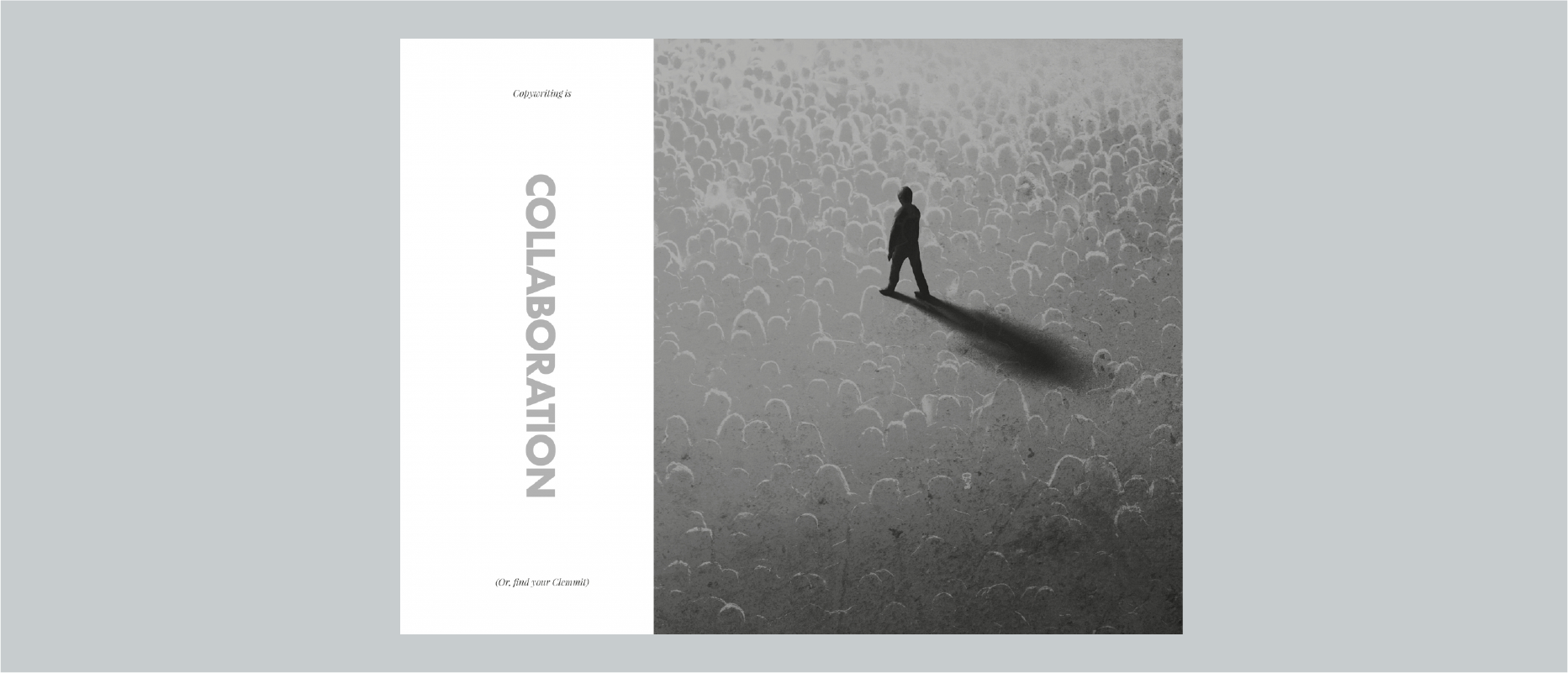

Congratulations on the book launch. What can people take away from Copywriting Is?
It’s not a guide to copywriting, there are books out there that already do that really well, like Read Me by Gyles Lingwood and Roger Horberry and the Mark Shaw book on copywriting. It's an explanation of what it's like to be and think like a copywriter and face the strange challenges, doubts, and experiences alongside this.
Vikki Ross very kindly wrote a really lovely thing about it, saying it's like a love letter to copywriting. Annoyingly, she's explained it far better than I've been able to, but that's how I describe it. It's very much my love letter to this weird, fun, different companion that I've had professionally for the last 12 years, and that I'll always have with me my whole life.
How did Copywriting Is come together?
I’m very lucky. I've been writing for The Drum for a lot of years, and they've always been incredibly generous and supportive. They let me write what I want about copywriting. So, I had a core base of material, but I needed to put it into some kind of structure.
I’m very lucky to have found Gasp publisher Giles Edwards in particular. On a whim, we were chatting about something completely different. I was saying how much I like a book he published called Delusions of Brandeur, and jokingly said, I've written a book, would you like to publish it?
He read it and got back to me and said, we love it, we want to do it. And he's made it happen. Every step of the way, he’s pushed it forward, and I never would have been able to do that on my own. He's also done an amazing job with the design of it.
What inspired you to write it?
I've always wanted to write a book. I started and realised it’s really hard work, but I forced myself to do it, because I felt like I wouldn’t have achieved what I really wanted to if I didn't do it, or at least see if I could.
Do you have any advice for someone looking to write a book on copywriting?
I think you've got to at least write four or five chapters and be brutally honest with yourself if you're going to stick with it. If you don't love doing it or feel like it’s going somewhere, you can easily burn through a lot of time on a book that you lose interest in.
Begin that process and figure out what’s your unique voice in this world. There will always be a market for copywriting books, because there will always be so many different angles, perspectives, and views on how to do it well.
As a full-time teacher who takes on a handful of freelance clients and has written a book, what’s your advice to someone balancing multiple projects?
You have to say no to stuff (I struggle with it, I’ll say yes to most things). It’s not about what you can do. You could fit 15 things into a week. You'd have a horrible week, but you could fit them in. It’s about what do you want to do.
I’m privileged to handpick the copy projects I want to work on. I can choose the ones where I'm really interested in the work or, more often these days, where I love the people. I've learned the most fun you have as a copywriter is when you're working for people you like.
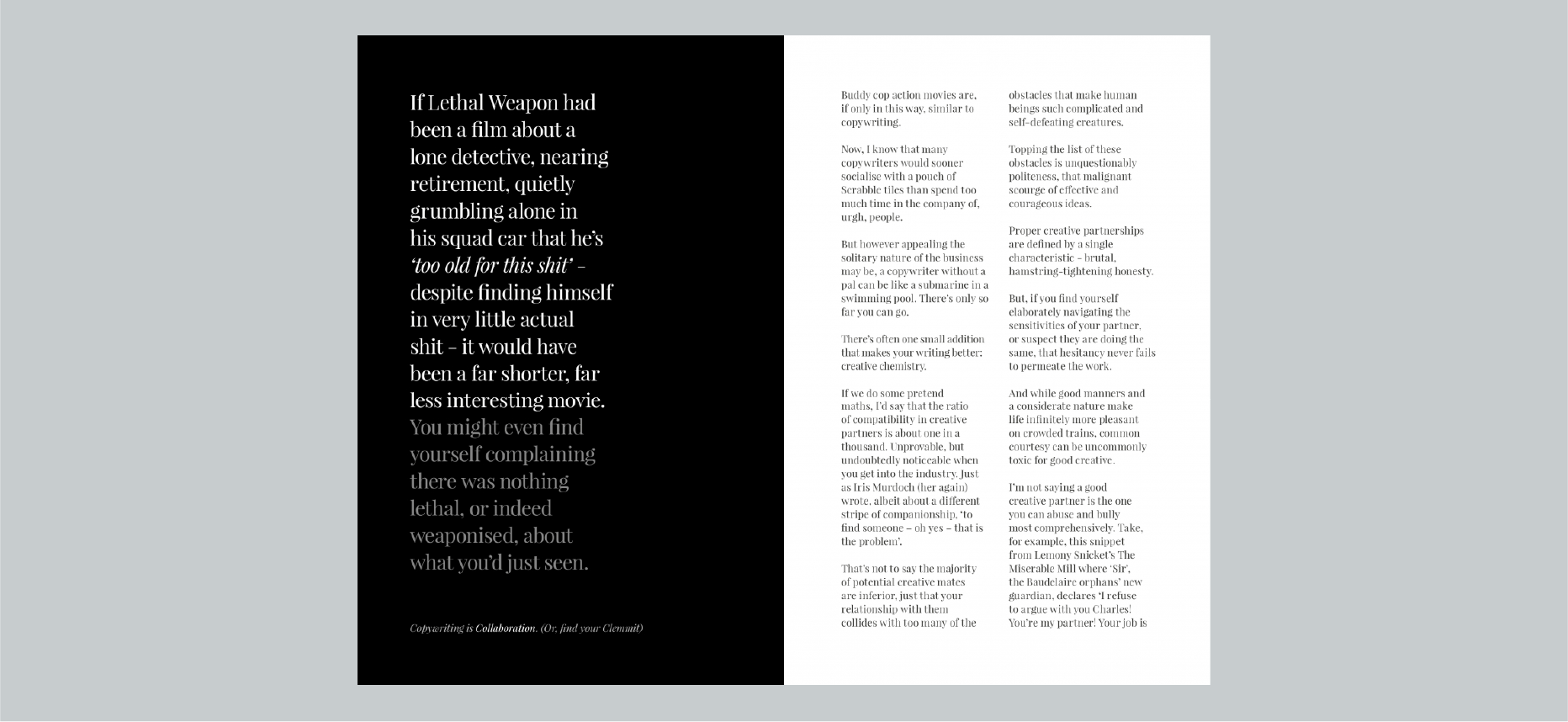

What made you become a full-time lecturer?
I fell into it completely by accident, just like writing. I was working at an agency and a friend who also worked there left to lead the Creative Advertising course. He got me in a few sessions and, annoyingly, I loved it.
Fundamentally, I'm still a writer, I'm a writer pretending to be a teacher. But it's just a weirdly rewarding job. Helping young creatives find out what type of creative they’re and what their future looks like is really exciting.
Is there an exercise that your students do that is most beneficial for them and helpful for copywriters in general?
Me and Gyles Lingwood work together on this workshop called Scribble Sushi. Over the course of an hour, we give 10 micro-writing challenges around a prompt. As soon as the clock starts, you write until it stops, and then we review what people have done. It's not about craft or producing amazingly phrased writing.
It’s about the spontaneity, using writing as a way to unlock surprising and unexpected ideas. And there's no reason why a writer at any level shouldn't do that. Set yourself challenges, something that will make you feel uncomfortable and force you to write in a way you wouldn't choose to.
When you start on a brief, I find it's worth filling a page. Don't try or think too hard. Don't even concentrate too much of the brief, just fill a page. What you often find is all of the most obvious, most tried, laziest solutions and lines. But that's not a disheartening thing. What you've done is you've flushed all of that in your system. You’ve shown the path you don’t want to go down. Then you go in the opposite direction.

So what makes fantastic copy?
Surprise. In copywriting, you're very rarely going to be asked to say a message that has never been said before. So, the challenge isn't to come up with a new thing to say, it’s to say an old thing in a new way. That’s a large part of it.
Another part is brilliant storytelling. The word story has had a really tough time and is often misused, but telling a brilliant story is still at the heart of copywriting. Not just when it comes to long copy, but that element of narrative, sense of drama, and a memorable ending in all copy.
A lot of copywriters have John Yorke's screenwriting book, Into the Woods, and they treat it with almost the same importance as their favourite copywriting book, because it talks to you about how to trigger the part of the human brain that’s naturally drawn to good storytelling.
Do you have any advice for creating a story arc within something that is very short?
When people hear the word story, they feel like it has to be long form, and it doesn't. The famous Economist ad: ““I never read The Economist” – Management Trainee, Aged 42” – is a story.
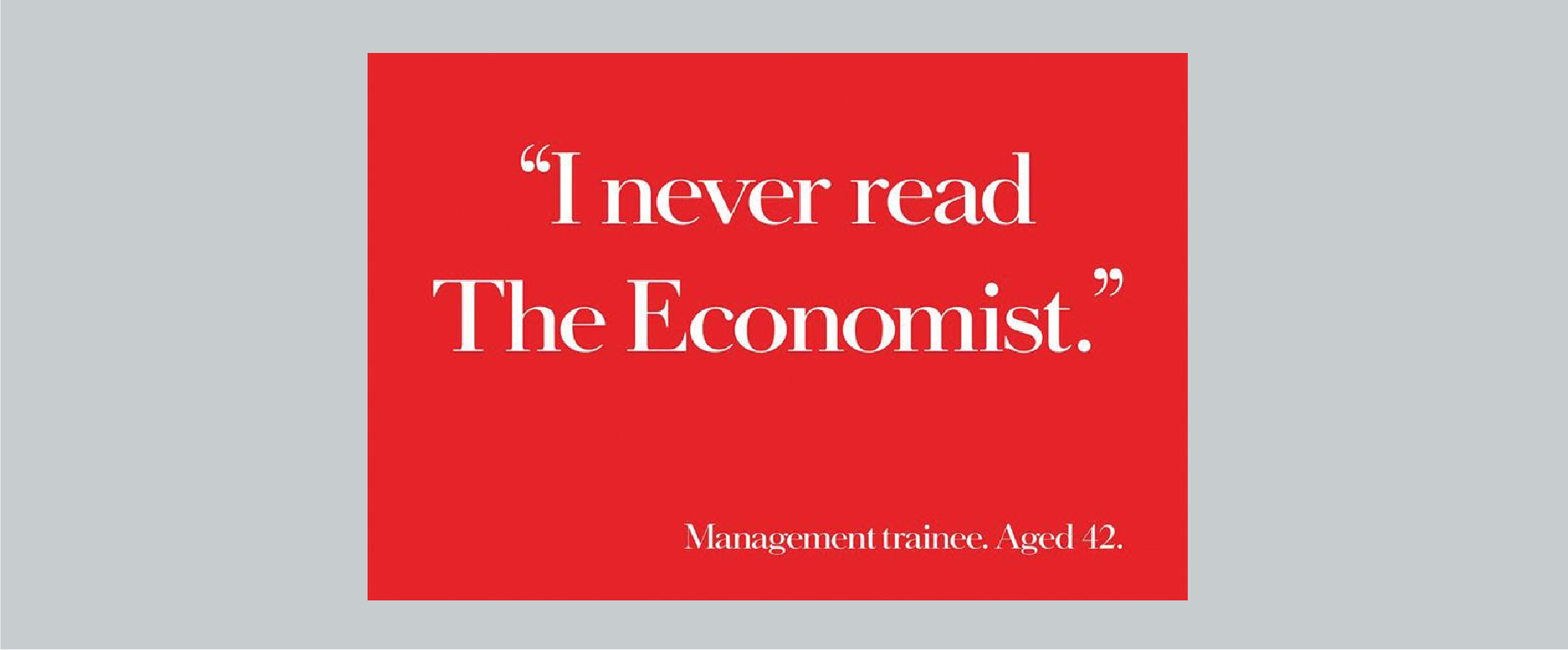
Ultimately, a story gives you this micro drama to play inside your own head, and you have to piece elements of it together yourself. If you write a story that fills in all of the gaps, your reader doesn't have to do any work. You can't do that in short form, but even in long form, it's going to feel clunky and it won’t have any sense of drama, tension, or surprise.
You talked about how certain skills from screenplay writing can transfer into copywriting. Do you think the same is true for other genres, such as fiction, poetry, or journalism?
100%. I always tell my students to write their own poetry, because I believe that’s the best practice you can do as a copywriter. The craft of expressing something beautifully and differently, the strange uses of language, you don't see that any other form.
I’ve been flipping through Fondue, a collection of poems by AK Blakemore, and some of the phrasing is so weird and expected. They’re lines that nobody has ever written. And this idea of writing a line that no one has written or conceived of before is an amazing practice and skill for copywriters to hone.
Writing poems helps you find unexpected ways to phrase things, writing a play or dialogue gives you a better understanding of the natural rhythms of conversations, writing journalistically helps you take information and structure it, so that it becomes a really engaging read. The worst thing you could do as a copywriter is only ever read copywriting.

Do you think there are disciplines outside of writing that can make you a better copywriter?
I think it's about human beings and doing whatever brings you closer to this strange and complex animal. Go out into the world and walk around listening in on people's conversations. Be nosy and be curious.
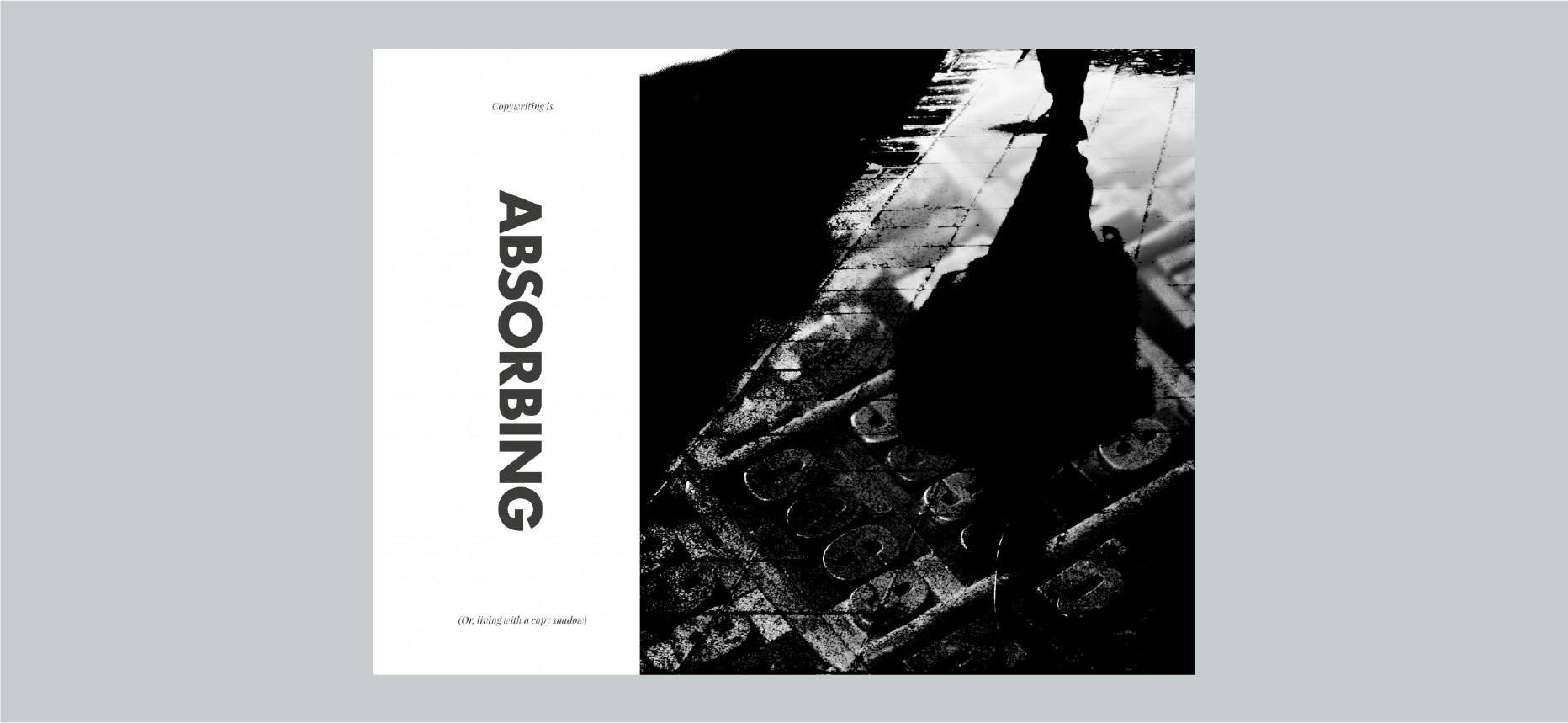
How do you go from being a good copywriter to a great one?
Let go of the fixation of greatness. At any level, if you're chasing that status, whatever that looks like to you, it gets in the way of writing with freedom and without fear. If you have something at stake, writing becomes a scarier thing and process. You've got to write almost as if it doesn't matter. Write as if no one is ever going to see it.
Other than writing good copy, what’s the best quality a copywriter can have?
Discipline. It's the hardest thing for any copywriter to learn and nobody enters the job with it fully formed.
You get into copywriting because you love to write, and you love to write about the things you enjoy. But it's not about what you want to express or how you see the world, and that's a dramatic change of perspective. I haven’t yet met a copywriter who didn't and still doesn't wrestle with that to some degree.
But that’s where discipline comes in: being able to force yourself to write and adapt that way of thinking, depending on what the problem is in front of you.
So what’s your advice for writing copy on something that’s a bit mundane or you can't relate to as much?
Perhaps you can't make it exciting or dramatically different, but there's always a chance to make something surprising, even if it's just surprising your client by saying, I never thought about expressing it this way.
Do you have any tips for talking to or persuading clients?
What I've learned the hard way over the years is the best way to persuade a client, whether you're a copywriter or any level of creative, is say as little as you can. If the work is good, it should speak immediately for what it does.
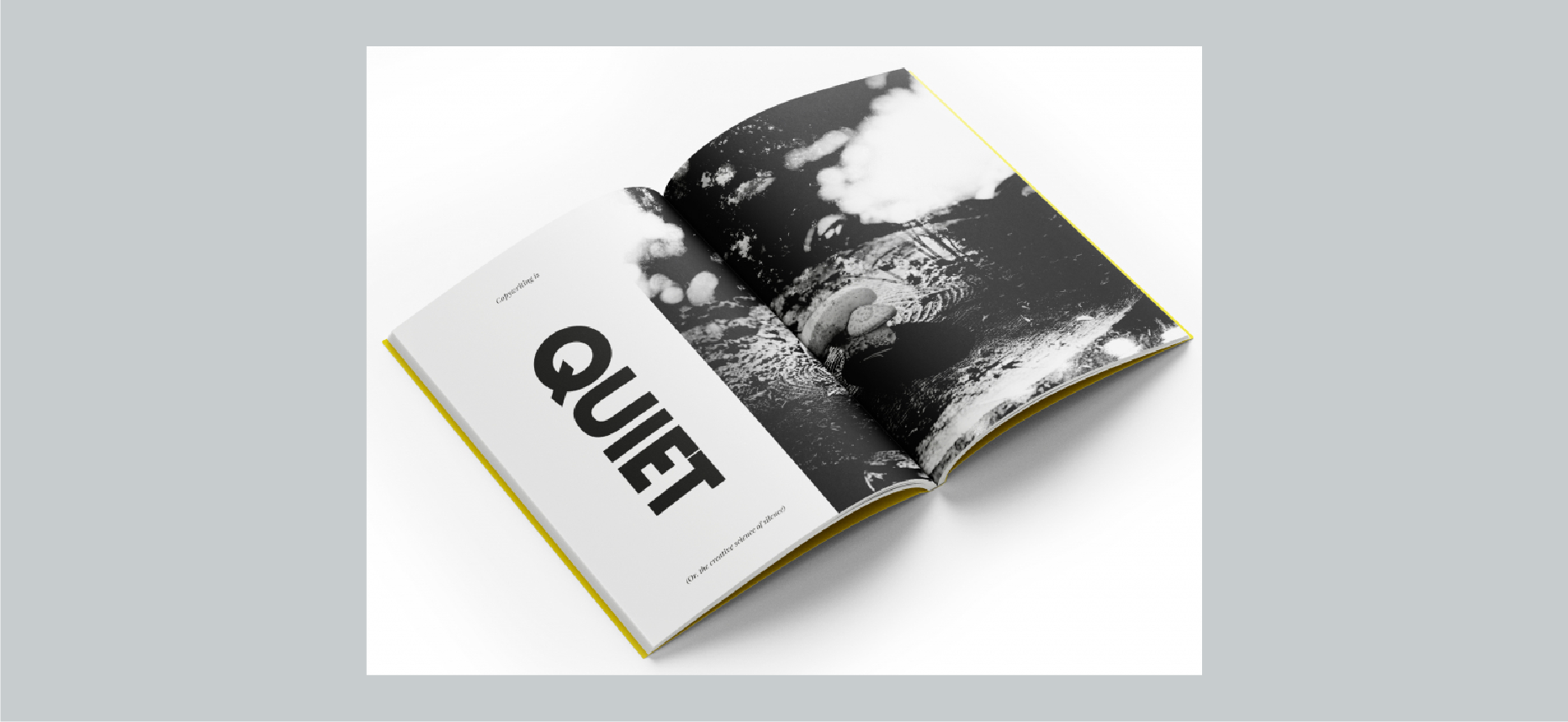
What are some of the most common mistakes that copywriters make?
Getting too wrapped up in your own idea. No matter what stage you're at, you continually wrestle with this tension. I'll write something that I think is brilliant, but it's not right, and I don’t always make that disciplined, rational, objective choice to not put it forward.
Sometimes, you even end up persuading the client that it’s right. And what you've produced is great writing and bad copywriting, because it’s not going to do the job it was supposed to.
The other is forgetting that your audience is a human being. It's incredible what you can learn from data, insights, and analytics about the people you're trying to reach, but you can't put that ahead of the fact that you're trying to have a conversation with a person.
Human beings speak in a certain way and are used to being spoken to in a certain way. If what you write is too wrapped up in profiling or segmentation, you forget that and fall into the trap of marketing without the creative bit.
Do you think it's important to go out and speak to people and overhear their conversations?
I think the worst place you can stay in to write authentically is in an agency, or in an environment where you're surrounded by people from the same industry. Whenever I've had a brief, I've been lucky enough to work in agencies where I can go somewhere else: a coffee shop, a park, a library. I want to be somewhere that feels like it's more in the real world.
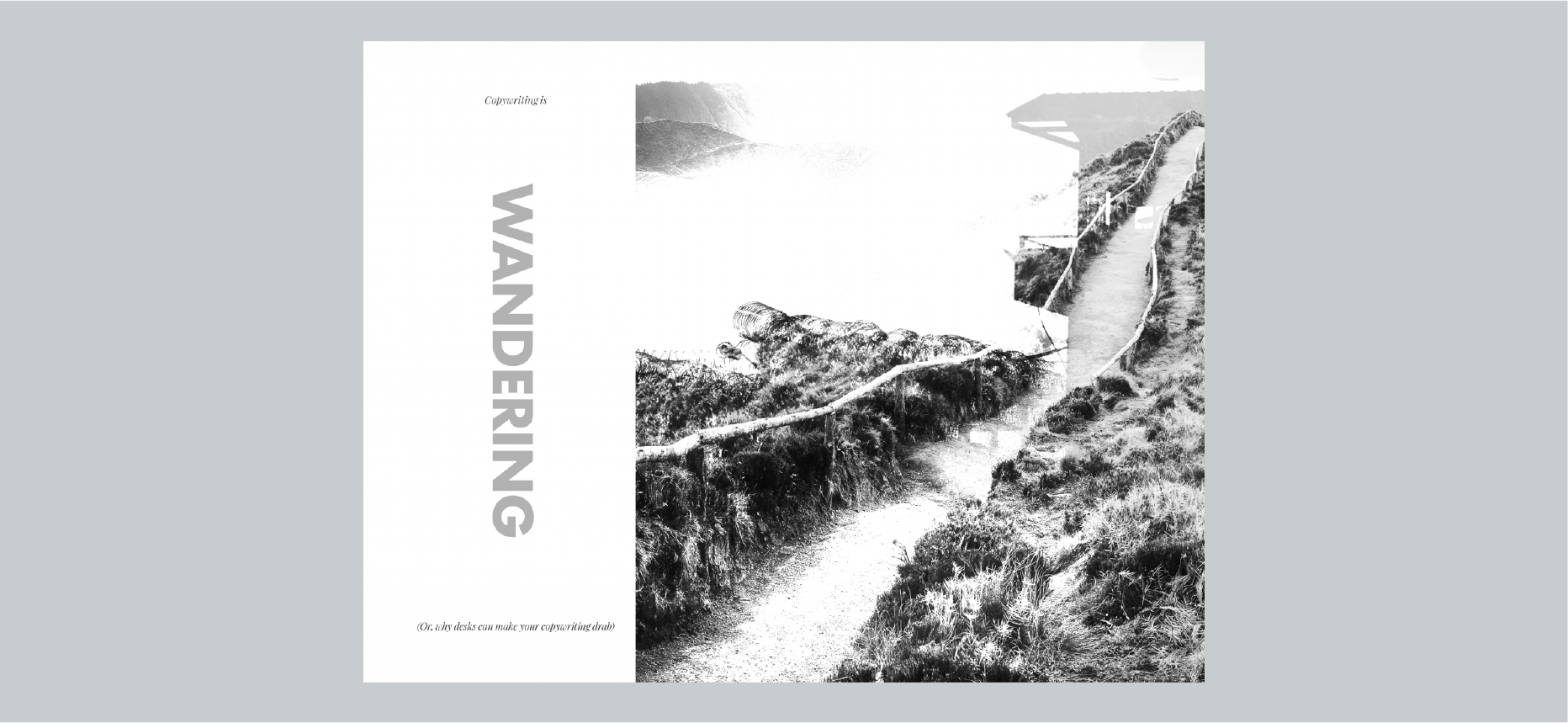

Do you think the way we express ourselves has changed over time or the function of copywriting itself has changed?
The nature of copywriting and communicating using words – either written or spoken – is a fundamental human thing that at its core hasn't altered much. We’re just exposed to so many more voices now.
And if you're a copywriter, this is an enormous opportunity to become a more interesting and authentic voice. If you can express something in a witty, original, creative, and persuasive way, you've still written a good piece of copy, regardless of whether it’s a caption on an Instagram post or a piece of outdoor advertising.
How do you feel about the health of copywriting? Is the quantity of quality copy decreasing?
I find it really hard to see what people are talking about when they talk about the decline of good copy or why we can’t write like we used to, because there's so much incredible copy being written at the moment.
When we look back on this so-called golden age of copywriting, we remember the brilliant stuff, but we forget that, in any phase of creative advertising and copywriting, there’s terrible stuff that’s clunky, cheesy, and ad sell-y as well. But it’s the good work that survives.
Everyone has their own perspective, but I think you can only judge the quality of copywriting by the good stuff that's coming out. And there's plenty of it.
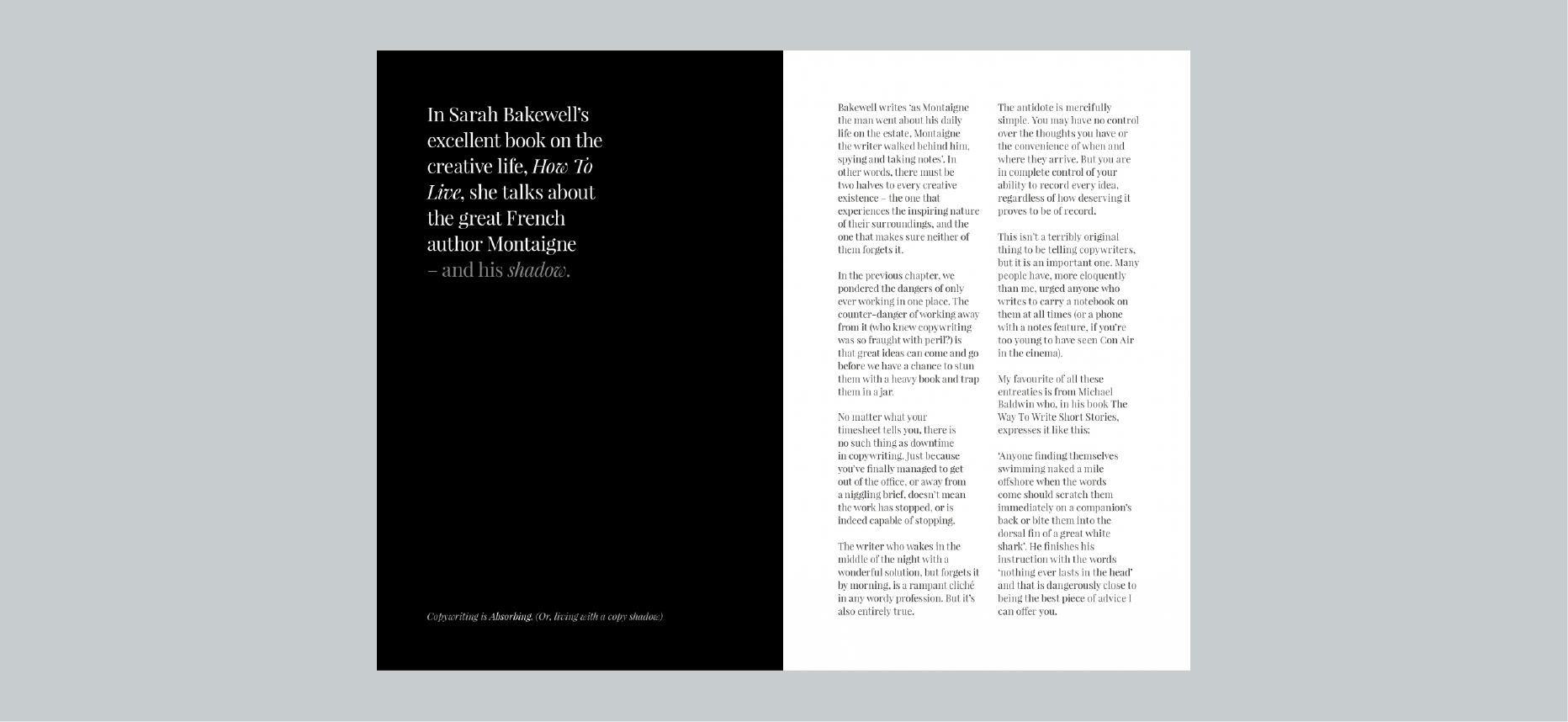
When you say the golden age of copywriting, are you referring to a specific time period?
To be honest, I don't believe it exists. We should learn as much as we can from the past work of brilliant copywriters, but we can't create this dogma of a golden period and everything being downhill since, because it's not true. It's an unhealthy way for any industry to think, especially a creative one.
What about the future of copywriting? Where do you see it going?
Copywriting is going to endure, purely because you need it. We’ve all seen a bad piece of writing, and that’s just a reminder of this fallacy that everybody can write. There's a role for copywriters in all kinds of walks of life, brands, businesses, and sectors.
Technology creates lasting and temporary, trend-driven change, but the fundamental core of copywriting is to express something in the most effective and persuasive way. That will always be a need.
The change I want to see is copywriting and creative industries becoming much more representative of the way the world looks like. As an industry, we've got an enormous way to go in terms of true diversity and representation.
When you look at copywriting, you're trying to speak to people in a way that’s engaging, familiar, reassuring, and trustworthy. You can't do that if there’s only a tiny segment of society being the ones who dictate what those messages are. If we all draw on the same life experiences, copywriting is going to become very shallow, and if anything is going to make us feel irrelevant, it’s that.

Would you agree that some brands and agencies have jumped on this ‘diversity bandwagon’ that’s not genuine?
Broadly speaking, yeah. Like a lot of people, I follow Derek Walker on Twitter, and he’s a very honest, determined, and rational voice. One of his big things is that there’s so much talk. Agencies are making their promises and aligning their visions, but every agency, every creative, every person in a leadership position in this world could be doing more, even the ones thinking about it in the right way. The more we actually put into action, rather than just discuss, the closer we get.
Do you have any advice for brands on how to create more diverse and inclusive work while still remaining authentic to their brand purpose?
For me, it's about opportunity. If you don't look like the typical senior or lead creatives in an agency, if your background isn't the same, do you get the same opportunity to show how good you are?
We need to give people the opportunity to shine and show off what they're really all about. We can't lie to ourselves about meritocracy in the agency, saying if you're good enough, you'll go as far as you can, because there are things in place that stop that. I acknowledge that a lot of these things are unconscious sources of bias, but they're still there.
If you’re a brand, get as many different perspectives as possible to think about and answer your brief, because if you come back with a richer and more diverse collection of ideas, you're more likely to have the thing the client is going to pay for. We all share a responsibility as creatives to be at the heart of this change.
Our final question: what is one campaign that you admire?
BBC’s Backing Brilliant Creativity from a team called Shan & Beth, who’re graduates of Lincoln. It's this advert where they've taken the letters BBC and built different sentences of words like ‘bad boy charm’ and ‘barely bearable cliffhangers.’
I've used it as an example in a talk about play. Copywriting is playing with words and this shows the simplicity, elegance, and fun in that concept. I look at that and go, I really wish I'd done that.
A huge thanks to Andrew for sharing his time and insights with us. You can follow him on Twitter, here.
Plus, check out more work for our Great British Creativity campaign, here.
Ready to unleash your imagination, curiosity, and creativity? Explore our range of Copywriting and Creative courses.

Please login to comment.
Comments